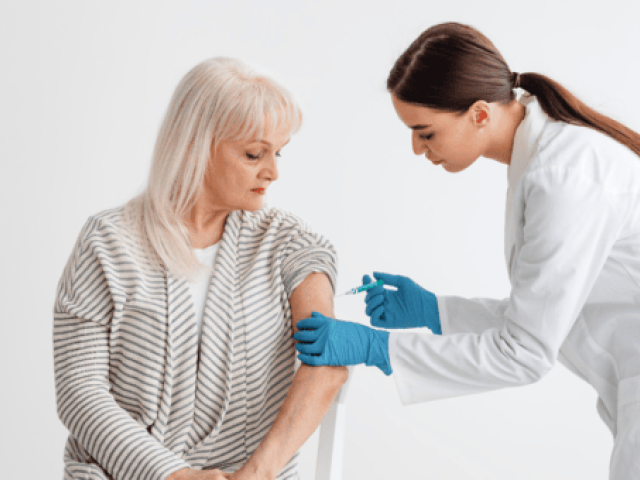
Sirtuin Supplements: Types, Benefits and Risks
Sirtuin supplements are compounds designed to activate specific cellular proteins that regulate aging and metabolism. NAD precursors like NMN show proven benefits in human trials, while direct activators like resveratrol fail due to poor bioavailability.
The supplement market promotes sirtuins as anti-aging solutions, but clinical evidence reveals significant differences between compound types. NAD precursors reliably increase cellular fuel for sirtuins, while direct activators struggle to reach therapeutic levels in human studies.
Key Takeaways
- Sirtuins are proteins that use NAD to repair cells and fight aging
- Two main supplement categories exist: direct activators (like resveratrol) and indirect activators (like NMN)
- NAD precursor supplements work better than direct activators because they have superior bioavailability
- Exercise, caloric restriction, and quality sleep naturally activate sirtuins
What are Sirtuins?
Sirtuins are NAD-dependent proteins (SIRT1 through SIRT7) that function as cellular guardians regulating DNA repair, metabolism, and inflammation. These longevity proteins require NAD as fuel and become less active with age, contributing to cellular dysfunction.
Your body contains 7 different sirtuins with specific cellular locations:
- Nuclear sirtuins (SIRT1, SIRT6, SIRT7) protect DNA and regulate gene expression
- Mitochondrial sirtuins (SIRT3, SIRT4, SIRT5) control energy production and metabolism
- Cytoplasmic sirtuin (SIRT2) manages cell division and cellular processes
Research shows that sirtuins handle critical jobs like DNA repair, inflammation control, metabolic homeostasis, and protection against oxidative damage1. They’re like quality control managers for your cells.
These enzyme systems become less active as you age. This decline has been linked to many age-related diseases and metabolic disorders.
How Sirtuins and NAD Work Together
Sirtuins consume one NAD molecule for every enzymatic reaction they perform, making NAD the required fuel for sirtuin function. NAD levels decline by approximately 50% between ages 20 and 50, creating insufficient fuel for optimal sirtuin activity.
NAD functions as both fuel and metabolic sensor for sirtuins. When NAD levels are high, sirtuins activate to promote cellular repair and stress resistance.
The cellular relationship operates through this mechanism:
- Healthy NAD levels = Active sirtuins = Better cellular health
- Low NAD levels = Reduced sirtuin activity = Accelerated aging
Your NAD levels drop with age, explaining why many people experience increased energy when they restore NAD through supplementation.
Want to Know Your NAD Levels?
You can’t fix what you don’t measure. Since NAD levels vary between people, the same supplement dose might work perfectly for your friend but do nothing for you.
Jinfiniti’s Intracellular NAD® test measures your actual cellular NAD levels with a simple finger-prick blood test at home. You’ll discover whether your levels fall in the optimal range (40-100 μM) and get personalized dosage recommendations.
Can Supplements Activate Sirtuins?
Scientists have used two strategies to boost sirtuin function: direct allosteric activators that bind to sirtuin enzymes, and indirect NAD precursors that increase cellular fuel supply. NAD precursors show superior results in human trials compared to direct activators.
Direct Activators
Direct activators physically bind to sirtuin proteins and increase their enzymatic activity. Resveratrol represents the most studied direct activator, isolated from red wine and grape skin.
Animal studies reveal impressive benefits from direct activators, but human clinical trials produce inconsistent results due to bioavailability limitations2.
Indirect Activators
Indirect activators increase NAD supply, providing more fuel for natural sirtuin function. This approach works with your body’s regulatory systems rather than overriding them.
Methods to increase NAD levels include:
- Nicotinamide riboside (NR)
- Nicotinamide mononucleotide (NMN)
- Regular exercise and caloric restriction
Clinical evidence favors the indirect approach because it supports physiological sirtuin regulation.
Sirtuin Supplementation for Longevity
The longevity supplement market promotes sirtuins as fountain-of-youth molecules. But what does the actual research show?
The Promise
Laboratory studies reveal that activating sirtuins can:
- Extend lifespan in yeast, worms, and mice
- Improve stress resistance and DNA repair
- Enhance metabolic health and energy production
- Reduce inflammation and oxidative stress
The Reality
Human studies show mixed results. Clinical trials often fail to reproduce the dramatic benefits seen in lab animals3.
Several factors explain this gap:
- Poor bioavailability of some compounds
- Short study durations for age-related outcomes
- Differences between healthy people and those with health problems
The supplements that boost NAD levels show more consistent human benefits than direct sirtuin activators.
Types of Sirtuin Supplements
There are four main sirtuin supplements available: resveratrol (20% bioavailability), pterostilbene (80% bioavailability), nicotinamide riboside, and nicotinamide mononucleotide. NAD precursors show superior human clinical outcomes compared to direct activators.
Resveratrol
Resveratrol is a polyphenol compound extracted from grape skin that was the first discovered sirtuin activator. Extensive human studies consistently show disappointing results despite resveratrol’s proven antioxidant properties, due to extremely poor bioavailability4.
Oral resveratrol achieves only 20% bioavailability because liver enzymes rapidly break down the compound before it reaches target tissues. This major pharmacological limitation prevents therapeutic blood concentrations in human subjects.
Pterostilbene
Pterostilbene is a resveratrol analog also found in blueberries with improved lipophilicity that achieves 80% bioavailability and 105-minute half-life compared to resveratrol’s 14-minute half-life.
The primary human safety trial revealed that pterostilbene markedly increases LDL cholesterol levels, creating safety concerns for cardiovascular health5. Limited human efficacy data exists for pterostilbene.
NAD Precursors
NMN and NR are the most scientifically validated approach to sirtuin support through NAD improvement.
Human clinical trials confirm that NR safely and reliably increases blood NAD+ levels. Some studies found benefits like reduced blood pressure and decreased inflammatory markers in older adults6.
Human studies with NMN show more consistent results7. A recent meta-analysis concluded that NMN has positive effects on muscle function and insulin resistance in middle-aged and elderly adults8.
Sirtuin Supplements Compared
| Compound | Bioavailability | NAD Boost | Human Studies | Safety Profile |
|---|---|---|---|---|
| NR | High | Proven | Mixed results | Excellent |
| NMN | High | Proven | Promising | Excellent |
| Resveratrol | Very low | Uncertain | Disappointing | Good |
| Pterostilbene | High | Uncertain | Limited | Concerning |
SIRT1: The Most Studied Sirtuin
SIRT1 gets the most attention from researchers and supplement companies. This nuclear sirtuin regulates metabolism, inflammation, and stress responses.
SIRT1 activation provides several cellular benefits9:
- Improves insulin sensitivity and glucose metabolism
- Reduces inflammatory signaling pathways
- Supports DNA repair mechanisms
- Supports mitochondrial function
Most sirtuin supplements target SIRT1 specifically. However, the other 6 sirtuins also play important roles in cellular health.
A broader approach focuses on boosting NAD levels to support all sirtuins simultaneously. This strategy may provide wider benefits than targeting SIRT1 alone.
Do Sirtuin Supplements Slow the Aging Process?
The aging process involves multiple cellular pathways, not just sirtuins. While sirtuin activation can help, it’s not a magic bullet for aging.
What Works
Lifestyle habits that support sirtuin activation remain the gold standard:
- Caloric restriction or intermittent fasting
- Regular physical exercise
- Adequate sleep and stress management
These approaches naturally boost NAD levels and activate sirtuins without supplements.
Supplement Reality
For people who can’t or won’t make lifestyle changes, NAD precursors offer a reasonable alternative. Clinical studies show these supplements can:
- Safely increase blood NAD levels
- Improve some markers of metabolic health
- Support physical performance in older adults
However, the benefits are usually modest compared to diet and exercise changes.
The Science Behind Sirtuin Activity
Sirtuins function as metabolic sensors. When your cellular energy runs low (high NAD+/NADH ratio), sirtuins activate to help your cells adapt to stress.
This explains why caloric restriction and exercise are so effective. These interventions naturally create the metabolic conditions that activate sirtuins.
Direct activator supplements try to bypass this natural regulation. They force sirtuins to work even when cellular conditions don’t call for activation. This approach often backfires or produces inconsistent results.
NAD precursor supplements work more gently. They provide the raw materials your cells need to make NAD when required. This allows your natural regulatory systems to control sirtuin activity appropriately.
Choosing the Right Approach
If you’re considering sirtuin supplementation, focus on NAD precursors rather than direct activators.
Our Recommendation: Vitality NAD+ Booster
Jinfiniti’s Vitality NAD+ Booster combines NMN with synergistic compounds:
- NMN as the primary NAD precursor
- Creatine for cellular energy support
- D-ribose for energy metabolism
- Niacinamide for additional NAD synthesis
This formulation addresses the root cause of declining sirtuin activity – insufficient NAD levels. By supporting your cellular fuel supply, you allow natural sirtuin function to occur.
Testing Your NAD Levels
Before starting any NAD supplement, consider testing your NAD levels to establish your baseline. Jinfiniti’s Intracellular NAD Test can help you:
- Establish your baseline NAD status
- Determine if supplementation is needed
- Monitor your response to interventions
Safety and Side Effects
Sirtuin supplements generally show good safety profiles in human studies.
NAD Precursors (NR and NMN)
- Well-tolerated at doses up to 1,000-2,000 mg daily
- No serious adverse effects reported in clinical trials10
- May cause mild digestive upset in some people
Direct Activators
- Resveratrol is safe at typical doses (up to 1,000 mg daily)
- Pterostilbene may increase LDL cholesterol levels
- Long-term effects of high-dose direct activators remain unknown
The Bottom Line
NAD precursors like NMN show proven safety and biochemical efficacy in human trials, while direct sirtuin activators like resveratrol fail due to poor bioavailability. Lifestyle interventions including exercise and caloric restriction remain the most effective methods for sirtuin activation.
NAD precursors like NMN provide the best combination of safety, proven mechanism, and emerging clinical efficacy data. These compounds address the root cause of declining sirtuin function: insufficient cellular NAD levels.
Sirtuin supplements work most effectively when combined with healthy lifestyle practices. Regular exercise, proper nutrition, and adequate sleep provide the foundation for sirtuin activation and healthy aging processes.
Quick Review:
- Sirtuins require NAD as fuel for enzymatic function
- NAD levels decline 50% between ages 20 and 50
- NAD precursors outperform direct sirtuin activators in human studies
- Lifestyle interventions activate sirtuins most effectively
- NAD testing allows personalized supplementation approaches
Combining NAD level testing with targeted supplementation offers the most scientific approach to cellular health improvement.
References
- Michan S, Sinclair D. Sirtuins in mammals: insights into their biological function. Portland Press Ltd.; 2007. p. 1–13. https://doi.org/10.1042/bj20070140. doi:10.1042/bj20070140
- Dai H, Sinclair DA, Ellis JL, Steegborn C. Sirtuin activators and inhibitors: Promises, achievements, and challenges. Elsevier BV; 2018. p. 140–154. https://doi.org/10.1016/j.pharmthera.2018.03.004. doi:10.1016/j.pharmthera.2018.03.004
- Brown K, Theofanous D, Britton RG, Aburido G, Pepper C, Sri Undru S, Howells L. Resveratrol for the Management of Human Health: How Far Have We Come? A Systematic Review of Resveratrol Clinical Trials to Highlight Gaps and Opportunities. MDPI AG; 2024. p. 747. https://doi.org/10.3390/ijms25020747. doi:10.3390/ijms25020747
- Cucuz V, Cvejic J, Gojkovic-Bukarica L. Clinical trials of resveratrol efficacy and safety. National Library of Serbia; 2022. p. 613–618. https://doi.org/10.2298/vsp201126006c. doi:10.2298/vsp201126006c
- Riche DM, McEwen CL, Riche KD, Sherman JJ, Wofford MR, Deschamp D, Griswold M. Analysis of Safety from a Human Clinical Trial with Pterostilbene. Hindawi Limited; 2013. p. 1–5. https://doi.org/10.1155/2013/463595. doi:10.1155/2013/463595
- Mehmel M, Jovanović N, Spitz U. Nicotinamide Riboside—The Current State of Research and Therapeutic Uses. MDPI AG; 2020. p. 1616. https://doi.org/10.3390/nu12061616. doi:10.3390/nu12061616
- Okabe K, Yaku K, Uchida Y, Fukamizu Y, Sato T, Sakurai T, Tobe K, Nakagawa T. Oral Administration of Nicotinamide Mononucleotide Is Safe and Efficiently Increases Blood Nicotinamide Adenine Dinucleotide Levels in Healthy Subjects. Frontiers Media SA; 2022. https://doi.org/10.3389/fnut.2022.868640. doi:10.3389/fnut.2022.868640
- Wang J, Wang L, Wang T, Zhang Y, Zhou A, Wang Z, Xiong Z. Effects of Nicotinamide Mononucleotide Supplementation on Muscle and Liver Functions Among the Middle-aged and Elderly: A Systematic Review and Meta-analysis of Randomized Controlled Trials. Bentham Science Publishers Ltd.; 2025. p. 2141–2152. https://doi.org/10.2174/0113892010306242240808094303. doi:10.2174/0113892010306242240808094303
- Nakagawa T, Guarente L. Sirtuins at a glance. The Company of Biologists; 2011. p. 833–838. https://doi.org/10.1242/jcs.081067. doi:10.1242/jcs.081067
- Song Q, Zhou X, Xu K, Liu S, Zhu X, Yang J. The Safety and Antiaging Effects of Nicotinamide Mononucleotide in Human Clinical Trials: an Update. Elsevier BV; 2023. p. 1416–1435. https://doi.org/10.1016/j.advnut.2023.08.008. doi:10.1016/j.advnut.2023.08.008

Get weekly health insights and exclusive offers by joining our newsletter.










